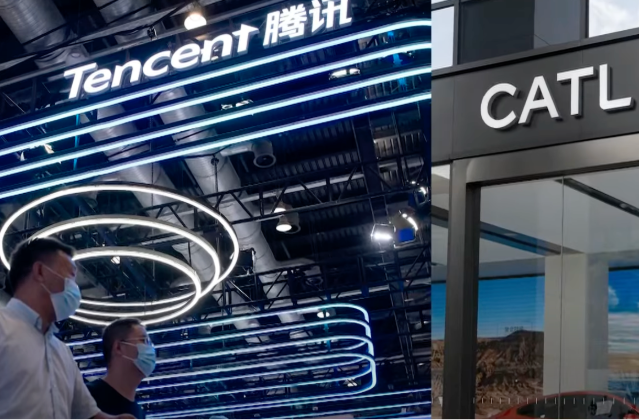News
Tencent, CATL Join Blacklist of Chinese Technology Firms With Suspected Military Ties

Source: YouTube
The U.S. Department of Defense has added several Chinese technology firms, including Tencent and CATL, to its Section 1260H list of companies allegedly tied to China's military. While the blacklisting does not impose immediate sanctions, it sends a powerful message to U.S. businesses about the risks of engaging with these firms.
Tencent, a leader in gaming and social media, and CATL, the world’s largest EV battery maker, now face scrutiny over their potential role in China’s military buildup. Both companies deny any military affiliations. The move is part of a broader strategy to curb China’s technological and military ambitions.
Implications of Chinese Technology Firms on the Pentagon Blacklist
For Tencent and CATL, the designation as military-linked companies is a reputational blow. While they are not currently barred from U.S. markets, inclusion on the blacklist can deter American businesses from partnering with them. This could impact their market share and stock performance, as seen with Tencent's 7% and CATL’s 4% stock drops following the announcement.
The Pentagon’s action may also lead to further investigations and potential sanctions from other U.S. agencies. Firms like CATL, deeply integrated into U.S. industries, face increased scrutiny over data security and national security risks. For example, CATL’s collaborations with American energy firms have raised concerns about vulnerabilities in critical infrastructure.
Impact on American Businesses
U.S. companies dealing with blacklisted firms face tough decisions. Continued partnerships could lead to reputational damage and strained government relations. Defense contractors, in particular, may find themselves in regulatory crosshairs if they fail to sever ties. Additionally, companies like Tesla, which rely on CATL’s batteries, might face pressure to diversify their supply chains.
Beyond individual firms, the blacklisting highlights broader economic and strategic tensions between the U.S. and China. As the global tech landscape becomes increasingly polarized, businesses must navigate complex geopolitical dynamics.
China’s Response and Countermeasures
The Chinese government has condemned the blacklist, calling it an “unreasonable suppression” of its firms. In retaliation, Beijing recently added several U.S. companies to its own “unreliable entities list.” While largely symbolic, these measures signal escalating economic friction between the two superpowers.
Tencent and CATL have both issued statements disputing their designation and pledging to work with U.S. authorities to resolve the matter. However, these efforts may do little to change the narrative shaped by the Pentagon’s actions.
Trump’s America-First Policy in Action
The blacklisting aligns with President-elect Donald Trump’s long-standing “America First” policy. Trump has consistently pushed for tariffs on Chinese goods and sought to reduce U.S. reliance on Chinese technology. By targeting firms like CATL and Tencent, the Pentagon’s actions bolster this agenda, signaling a tough stance on economic and technological competition with China.
Trump’s nominee for Secretary of State, Marco Rubio, has been a vocal critic of Chinese tech companies. He has led efforts to block Chinese investments in U.S. infrastructure, citing national security concerns. These moves indicate that the incoming administration will continue to prioritize safeguarding American industries from foreign influence.
The Future of U.S.-China Tech Relations
The blacklisting of Chinese technology firms is a significant development in the ongoing U.S.-China trade and tech wars. For American businesses, it underscores the risks of entanglement with firms deemed to support China’s military objectives. For Chinese companies, the move serves as a stark reminder of the challenges they face in the U.S. market.
As Trump prepares to take office, the focus on curbing China’s technological ambitions is expected to intensify. The question now is how these policies will reshape global technology partnerships and whether they will foster greater innovation or deepen economic divides.
Should American businesses cut ties with blacklisted Chinese technology firms to protect national security? Tell us what you think!



